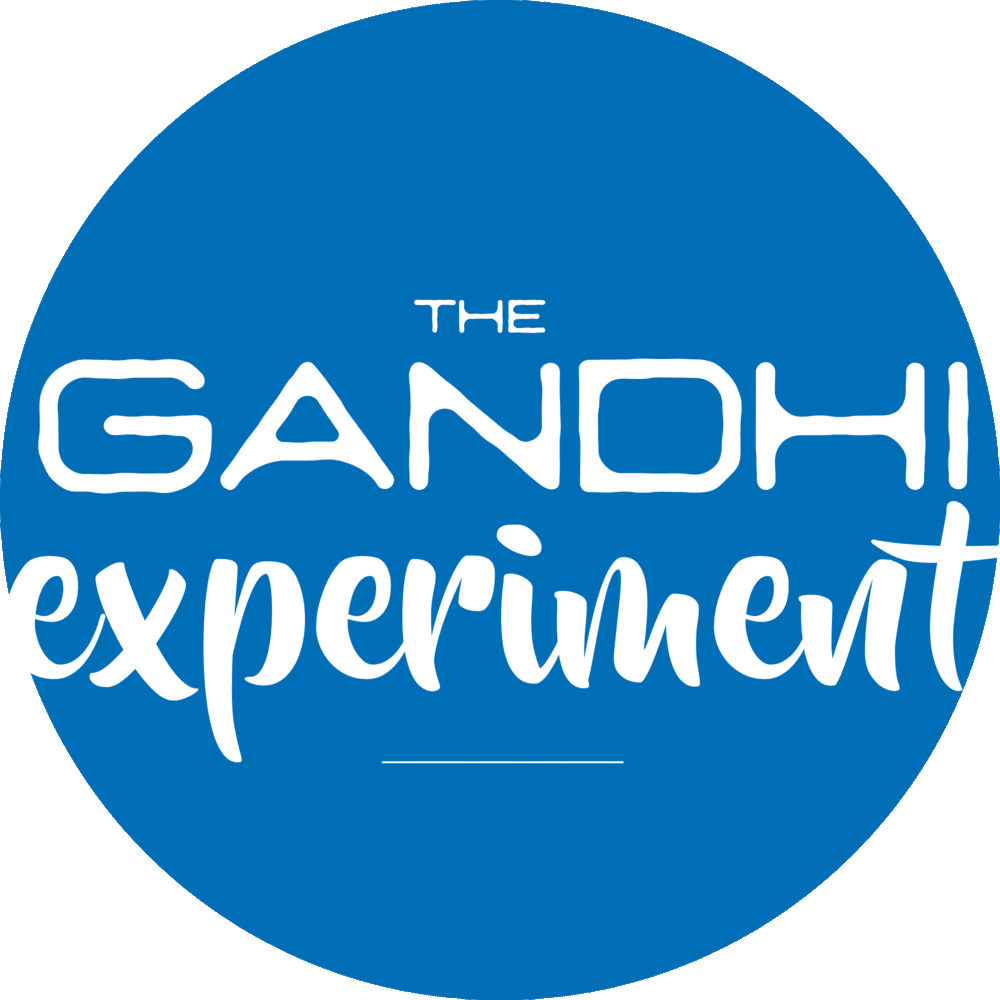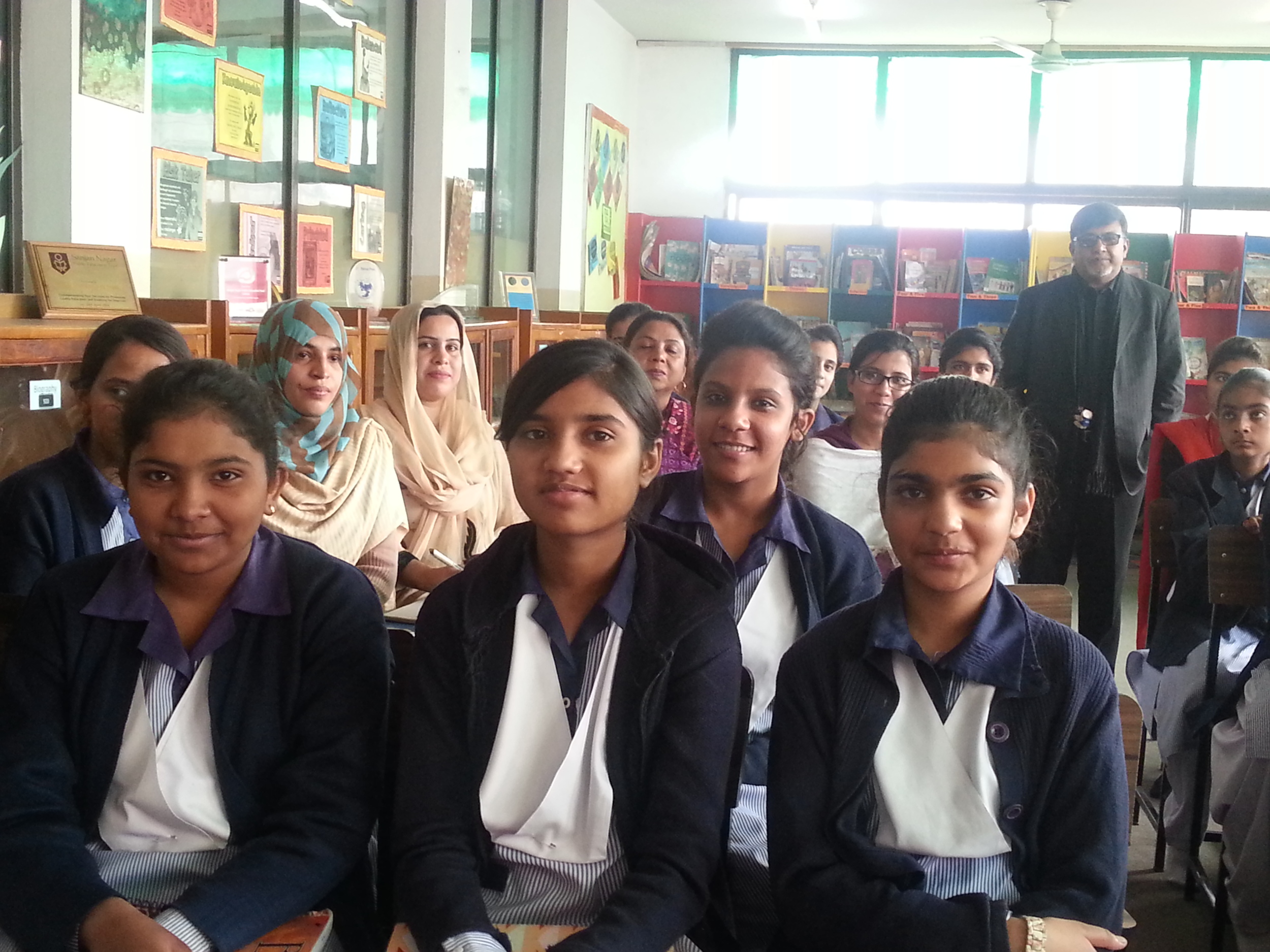Travelling across India in 2015, running my Global Participation – It starts with us! student workshops, I was asked several times: ‘What are you going to do next? What are your next steps moving forward? Where do you see this growing?’ My answer: ‘I’m going to write a book that includes activities from the workshops; that allows other teachers and parents to take these lessons forward. So that the messages move beyond me.’
Having made that declaration, on returning home to Melbourne, Australia, I found an email that had been sitting in my inbox for ten days. It was from Dharini Bhaskar, Editor at Rupa publications. ‘I have read about your work. Would you like to write a book?’ I nearly deleted it; surely this was spam? Then I read it again…and again. It was obvious Dharini actually did know about my work through The Gandhi Experiment; it was obvious she was writing personally, to me. Ah, the synchronicity I had come to understand that is somehow magically embedded in India was manifesting action. Dharini’s email was returned with a resounding ‘Yes.’
The book, The Gandhi Experiment – Teaching our teenagers how to become global citizens has now taken shape and a life of its own. It is due to be published on July 1, this year, only a few short weeks away. Am I excited? Absolutely. I can see the power of the messages already moving well beyond me as the author, as teachers in Mumbai and Nagaland have run The Best Forgiveness Role Play Ever, a secular and lateral approach to forgiveness and inclusivity; as other teachers, parents and youth leaders prepare to hold The Dinner Party to Save the World in their student forums or at home at their own dinner tables, hosting courageous conversations, provocations and mindful activities; as more teachers are taking on ‘Almost Impossible Thoughts’, teaching young people how to take their skills, their passions, their expertise and combine it with ‘What does the world need me to do right now?’ The Utopian Scale is designed to shift attitudes, whilst the Conundrum of Inner Listening helps us all find that ‘still, small voice’ of guidance within.
With my 30 years teaching experience, I know it is all about ensuring the lessons ‘stick,’ – that they move both inwards, then outwards, beyond the classroom walls. Underpinned by critical thinking, multiple intelligences, parallel thinking and positive education, these lessons are designed to do precisely that.
Nelson Mandela requested us all ‘To rise beyond our own expectations of ourselves.’ Yet Mandela wasn’t just speaking to the young people of this world – he was speaking to us all. If for two seconds you are wondering about the importance of this kind of teaching, then just look at the world around you.
How are we going to teach our teenagers how to become global citizens? Be inspired yourself by reading the chapter, ‘Almost Impossible Thoughts’. You will come to understand how to use your expertise, your passions, your visions –whatever they may be - to help our teens find expression in theirs.
Change really does begin with ‘me’. Ah, yes, that does mean you.
Let’s go for it!
Cheery blessings,
Margaret
The Gandhi Experiment – Teaching our teenagers how to become global citizens will be available through Amazon.com and Rupa publications on July 1. Go to www.thegandhiexperiment.com to be notified of publication and learn more about the student workshops.
Author / Educator Margaret Hepworth is an expert in teenage motivations & behaviours; a thought leader in peace education; the founder of The Gandhi Experiment; an English and Humanities teacher of 30 years; author of The Gandhi Experiment – teaching our teenagers how to become global citizens; recipient of the 2016 Sir John Monash Award for Inspirational Women's Leadership; creator of Collaborative Debating ©. www.thegandhiexperiment.com
Margaret@margarethepworth.com +61422154875
The Gandhi Experiment - the freshest ideas in mindful education













